MIHO's Healthy Smile Life
from webWD
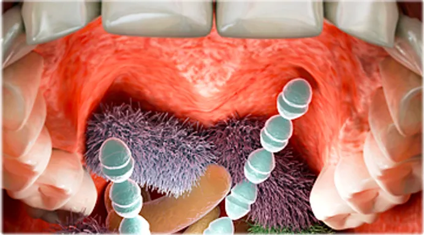
お口の中に何がいる?
Germs Quiz: What Lives in Your Mouth?
https://www.webmd.com/oral-health/rm-quiz-germs-your-mouth
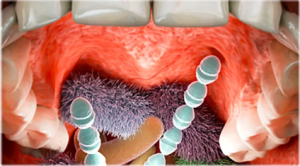
The number of bacteria in your mouth is closest to the population of which of the following?
○New York City
○ The United States
○ North America
○ Earth
url
あなたの口の中のバクテリアの数は、次のうちどこの人口に最も近いでしょうか?
○ ニューヨーク市
○ アメリカ合衆国
○ 北アメリカ
○ 地球

Answer
○ Earth
A typical human mouth contains billions of bacteria. If you haven’t brushed your teeth lately, you might well have more living there right now than there are people on Earth.
Scientists have identified more than 700 different species of microbes — ultra-tiny living things such as bacteria — that are in people’s mouths.
url
答え:
○ 地球
人間の口には数十億のバクテリアがいます。ずっと歯を磨いていない場合は、地球上の人口よりもお口の中にいるバクテリアの数の方が多いかもしれません。
科学者たちは、人々の口の中にいる700種以上の微生物(バクテリアなどの超小型生物)を特定しました。

Answer
○ False
There’s no basis for this myth. The mouths of humans and dogs both have roughly the same number of bacteria. And there are more than 100 different germs in dog (and cat) saliva that can make you sick.
url
答え:
○ うそ
この話には根拠がありません。人間と犬の口には、ほぼ同数の細菌がいます。
そして、犬(および猫)の唾液には100種類以上の細菌がおり、病気になる可能性があります。
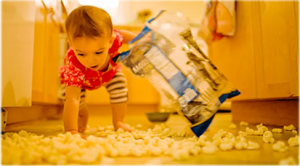
If you drop food on the floor, it doesn't get germs on it if you
pick it up within 5 seconds.
○ True
○ False
url
床に食べ物を落とした場合、5秒以内にそれを拾えば細菌が付着することはない
○ 本当
○ うそ

Answer:
○ False
While it’s true that the longer food is on the floor, the more germs it will pick up, the “5-second rule” isn’t real.
Food starts to pick up germs from the moment it hits the floor. You’re better off tossing it and eating something else.
url
答え:
○ うそ
食べ物が床に長く置かれているほど細菌が増えるのは事実ですが、「5 秒ルール」は現実的ではありません。
食品が床に落ちた瞬間から細菌が付着し始めます。落ちたものは捨てて別のものを食べたほうがよろしいかと思います。
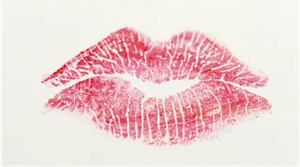
Anyone who kisses someone with gum disease will always get it.
○ True
○ False
url
歯周病の人にキスをすると、必ず歯周病がうつります。
○ 本当
○ うそ

Answer:
○ False
It’s not contagious. While bacteria can pass through saliva, gum disease typically develops if your teeth and gums aren’t healthy.
If your mouth isn’t healthy, you increase your risk for gum disease through repeated and lengthy exposure to someone who’s got it. To help keep germs away, brush, floss, and use an antiseptic mouthwash daily.
url
答え:
○ うそ
歯周病は伝染性ではありませんが、感染します。細菌は唾液を通過することができますが、歯と歯肉が健康でない場合、歯周病は通常発症します。
お口の中が健康でない場合、歯周病にかかっている人に繰り返し長時間さらされることで、歯周病のリスクが高まります。細菌を寄せ付けないようにするために、歯みがき、フロス、消毒用マウスウォッシュを毎日欠かさないようにしましょう。
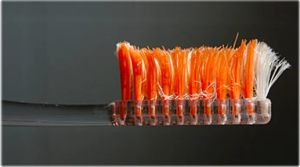
If you find yourself without a toothbrush, it's a good idea to
borrow a friend's.
○ True
○ False
url
歯ブラシがない場合には、友達のものを借りてもよい
○ 本当
○ うそ

Answer:
○ False
You should never share it with someone else. The CDC says that raises your risk of getting an infection.
url
答え:
○ うそ
歯ブラシは決して他人と共有してはいけません。 CDC(アメリカ疾病予防管理センター) によると、歯ブラシを他人とシェアすることは、感染のリスクを高めるそうです。
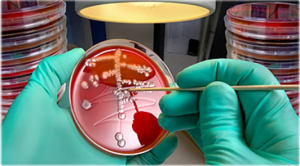
Which of the following items can transfer potentially dangerous microbes between people?You should never share it with someone else. The CDC says that raises your risk of getting an infection.
○ Lipstick
○ Drinking glasses
○ Band instruments
○ All of the above
url
次の項目のうち、潜在的に危険な微生物を人に移す可能性があるものはどれですか?
他の人と決して共有しないでください。CDC は、それが感染のリスクを高めると警告します。
○口紅
○グラス
○楽器
○上記のもの全て

Answer:
○ All the above
Studies show that germs may linger on lipstick, drinking glasses, band instruments, and other personal items.
Don’t share them if you want to avoid picking up potentially harmful bacteria, viruses, or other microbes.
url
答え:
○上記のもの全て
調査によると、細菌は口紅、グラス、楽器、およびその他の身の回り品に残る可能性があります。
潜在的に有害なバクテリア、ウイルス、またはその他の微生物を他人からもらいたくない場合は、それらを共有しないでください。
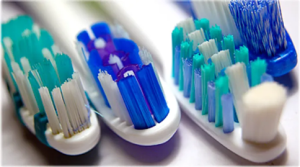
To protect your toothbrush from harmful germs, you should:
○ Leave it out in the open air
○ Store it in the closed container
○ Soak it in an antibacterial mouthwash
○ Microwave it for 15 seconds
url
歯ブラシを有害な細菌から保護するには、行う必要があるのは
○空気に触れるように放置しておく
○密閉容器にしまっておく
○殺菌効果のあるマウスウォッシュに浸す
○電子レンジに15秒間かける

Answer:
○ Leave it out in the open air
The American Dental Association recommends that you rinse your toothbrush with tap water after you use it, then let it air dry. Keeping it in a closed container creates an ideal moist environment for the growth of bacteria.
url
答え:
○空気に触れるように放置しておく
米国歯科医師会は、使用後は水道水で歯ブラシをすすぎ、自然乾燥させることを推奨しています。密閉容器に保管すると、細菌の増殖に理想的な湿度の高い環境が作成されます。

To avoid the buildup of bacteria, the American Dental Association recommends replacing your toothbrush every month.
○ True
○ False
url
細菌の蓄積を避けるために、米国歯科医師会は歯ブラシを毎月交換することを推奨している
○本当
○うそ

Answer:
○ False
The group suggests you get a new one every 3 to 4 months, or sooner if the bristles are frayed or after you’re sick. Your toothbrush won’t do a good job cleaning your teeth if it’s worn down.
url
答え:
○うそ
3〜4か月ごとに新しいものに交換することが提案されています。剛毛がほつれている場合、または病気にかかった後はそれより早く交換するようにしましょう。歯ブラシがすり減っていると、歯をきれいに磨くことができません。
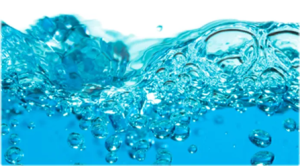
Antiseptic mouthwashes can keep your gums and teeth healthy.
○ True
○ False
url
消毒効果のあるうがい薬は、歯茎と歯を健康に保つことができる
○本当
○うそ

Answer:
○ True
Rinsing with one not only keeps your breath fresh, it can also help reduce plaque, the film of bacteria that forms on your teeth. It lowers inflammation of your gums, too.
Many dentists recommend using an antiseptic mouthwash twice a day.
url
答え:
○本当
消毒効果のあるうがい薬で口をゆすぐことで、息が新鮮に保たれるだけでなく、歯に形成される細菌の膜であるプラークを減らすのにも役立ちます。歯茎の炎症も抑えられます。
多くの歯科医は、消毒用マウスウォッシュを 1 日 2 回使用することを推奨しています。

Drinking green tea may help keep your teeth and gums healthy.
○ True
○ False
url
緑茶を飲むことで、歯と歯肉が健康に保たれる
○本当
○うそ

Answer:
○ True
Research shows that it’s linked to healthier gums and lower odds for tooth loss.
url
答え:
○本当
研究によると、歯茎が健康になり、歯を失う可能性が低下します。

All bacteria are bad for the health of your teeth and gums.
○ True
○ False
url
すべての細菌が歯と歯茎の健康に悪影響を及ぼす
○本当
○うそ

Answer:
○ False
While some bacteria are bad for your teeth and gums, others play a key role in keeping them healthy. Researchers are exploring a potential new kind of toothpaste based on mouth bacteria that create enzymes that prevent plaque.
url
答え:
〇 うそ
歯や歯茎に悪い細菌もあれば、健康を維持する上で重要な役割を果たしている細菌もあります。研究者たちは、歯垢を防ぐ酵素を作り出す口内細菌に基づいた新しい種類の歯磨き粉の可能性を探っています。
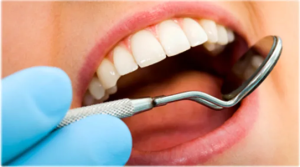
Answer:
○True
Most microbes in your mouth are part of a sticky film on your teeth known as plaque, which is the main cause of tooth decay. A single tooth can host 500 million bacteria. This is, of course, why you brush, floss, and use an antiseptic mouth rinse.
url
答え:
〇 本当
口の中のほとんどの微生物は、虫歯の主な原因となるプラークとして知られている歯の粘着性のフィルムの一部です。 1 本の歯には 5 億個の細菌が存在します。もちろん、これがブラッシング、フロス、防腐剤の洗口剤を使用する理由です。
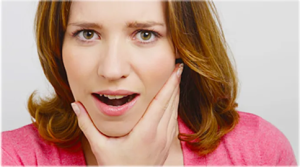
Bacteria in your mouth can cause tooth decay by:
○ Eating tooth enamel
○ Releaseing acids that weaken tooth enamel
○ Releasing sugars that destroy tooth enamel
○ All of the above
url
口の中の細菌が虫歯を引き起こす原因は
○ 歯のエナメル質を食べるから
○ 歯のエナメル質を弱める酸を放出するから
○ 歯のエナメル質を破壊する糖を放出するから
○ 上記のすべて

Answer:
○ Releasing acids that weaken tooth enamel
When you eat, the outer shell of your teeth, called enamel, can get weakened from acids given off by bacteria on your choppers. Fluoride in toothpaste and mouth rinses can help strengthen your enamel and prevent cavities.
url
答え:
○ 歯のエナメル質を弱める酸を放出するから
食事をすると、エナメル質と呼ばれる歯の外殻が、歯に付着したバクテリアから放出される酸によって弱体化する可能性があります。歯磨き粉や洗口液に含まれるフッ化物は、エナメル質を強化し、虫歯を予防するのに役立ちます。
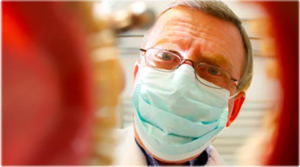
Research has shown a link between gum disease and:
○ Cardiovascular disease
○ Diabetes
○ Alzheimer’s disease
○ All of the above
url
研究によって歯周病と関連性が示されているものは
○ 心血管疾患
○ 糖尿病気
○ アルツハイマー病
○ 上記のすべて

Answer:
○ All the above
Harmful bacteria in your mouth can lead to gum disease, which has been linked to a number of other diseases. It was once believed that the bacteria were the culprit, but researchers have begun to think that inflammation caused by the bacteria is the key factor.
url
答え:
〇 上記のすべて
口の中の有害な細菌は、歯周病を引き起こす可能性があり、歯周病は他の多くの病気に関連しています。かつては細菌が原因と考えられていましたが、研究者は細菌による炎症が主な要因であると考え始めています。

